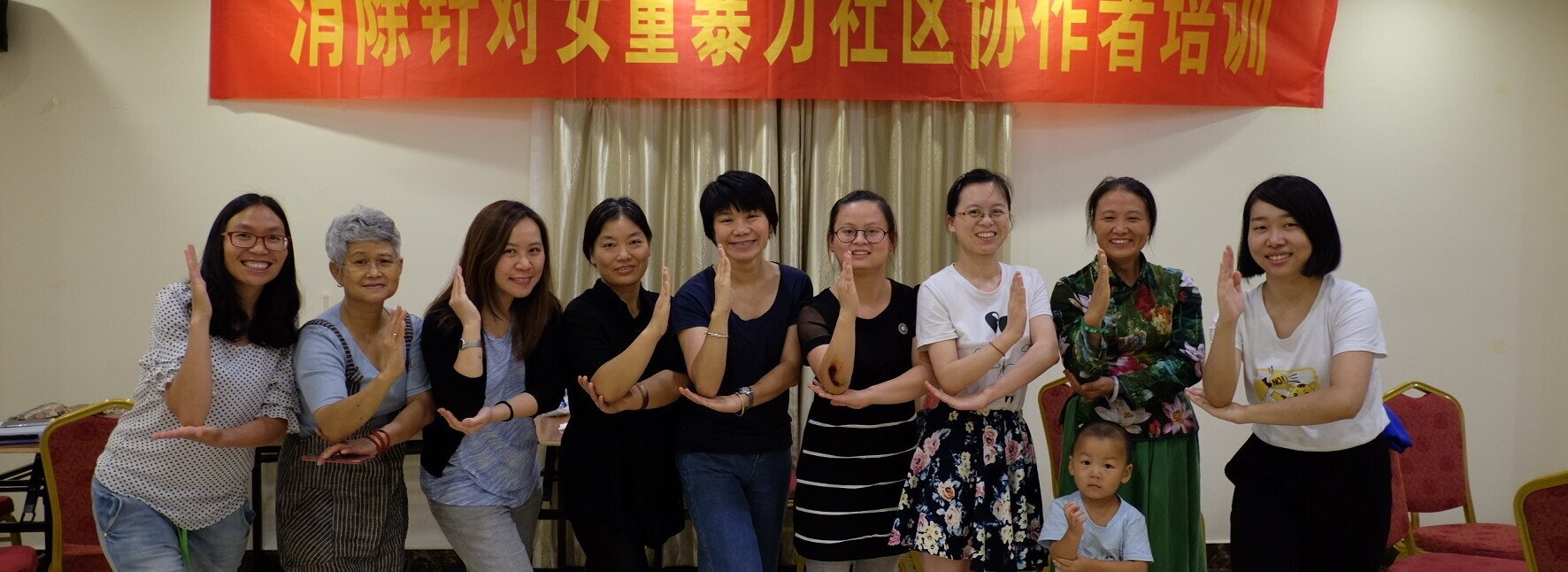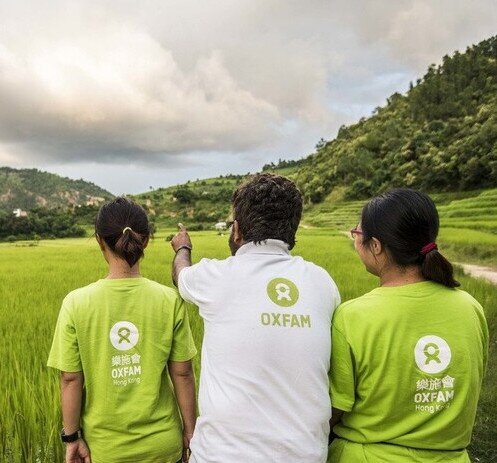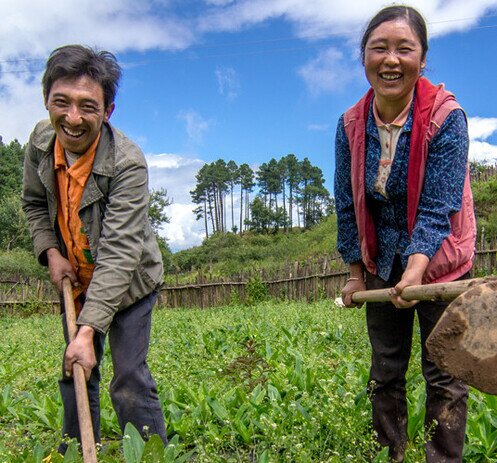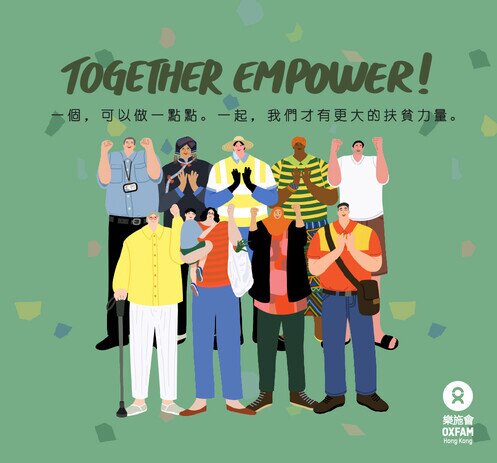Caption: Upon completing a 144-day walk from Beijing to Guangzhou, a group of young feminist activists called on the Guangdong Provincial Department of Education to establish a sexual assault prevention mechanism in schools. In addition, the activists proposed four ‘Sexual Assault Prevention Tips’. Photo: A Shan/Gender and Media Action Group
About our work
Women not only account for the majority of the population in mainland China that lives in poverty, but statistics also show an upward trend. Gender inequality and gender-based violence remains widespread, which highlights the vulnerability of women and other disadvantaged groups during this period of social transformation in mainland China. Through a comprehensive approach, direct services, community development, public education, policy advocacy and other initiatives, Oxfam has been standing against gender-based violence, empowering women, raising awareness about gender equality and fighting for gender justice.
Together, we can transform more lives!
Inequality Breeds Poverty –
Gender Injustice in China (Chi only)
Stories
.jpg)
Rural women have infinite potential. To ensure the equal right to choice and development, they need equal access to opportunities and resources.
Gao Yueqin grew up in a patriarchal family. Even though she loved reading, she had to drop out of school to take care of her family. She married a man from the neighbouring village and lived a normal life. Unfortunately, her marriage began to deteriorate when her husband — a firm believer in male chauvinism — began beating her, leading her to run away at 34 in 1998 to work as a house painter in Beijing. Five years later, she joined the charity Migrant Women’s Club to serve working women and domestic workers in the city.
To empower and train up rural women leaders, Oxfam began establishing rural women resource centres with Beijing Cultural Development Centrer for Rural Women in 2008. Through these centres, rural women gained access to libraries and capacity building activities. These proved effective as they raised participants’ awareness and equipped them with the necessary knowledge and skills to fight for gender equality.
Oxfam supported her by sharing how to facilitate participatory training, how to design and carry out training initiatives, how to raise participants’ awareness of gender equality, and the importance of grassroots women’s organisations. At the time, Oxfam was responsible for integrating the concept of gender equality and organisational operations into training initiatives. Yueqin was an ideal local trainer. Through our decade-long partnership, we empowered women to establish grassroots organisations by, with and for rural women, and this greatly benefited their communities. Yueqin also went to various villages to talk about gender equality and provided counselling services and support to rural women grassroots organisations.
After the training, all of the women agreed that their organisations should take action to fight for gender equality in such a way that benefits communities. During an intensive three-day organisational development course for rural women grassroots organisations, they developed a clearer mission, and a three- and one-year action plan for their organisations. They said with enthusiasm: ‘There was a lot of food for thought during the training session and our direction is clearer now.’ After the training, these rural women grassroots organisations will not only receive RMB30,000 a year to develop their organisations, but also in-person and online support.
Just seeing how Yueqin has grown, it’s clear that rural women have infinite potential. We at Oxfam will continue to walk with the marginalised, and provide them with opportunities and resources so that everyone has equal rights to choice and development.
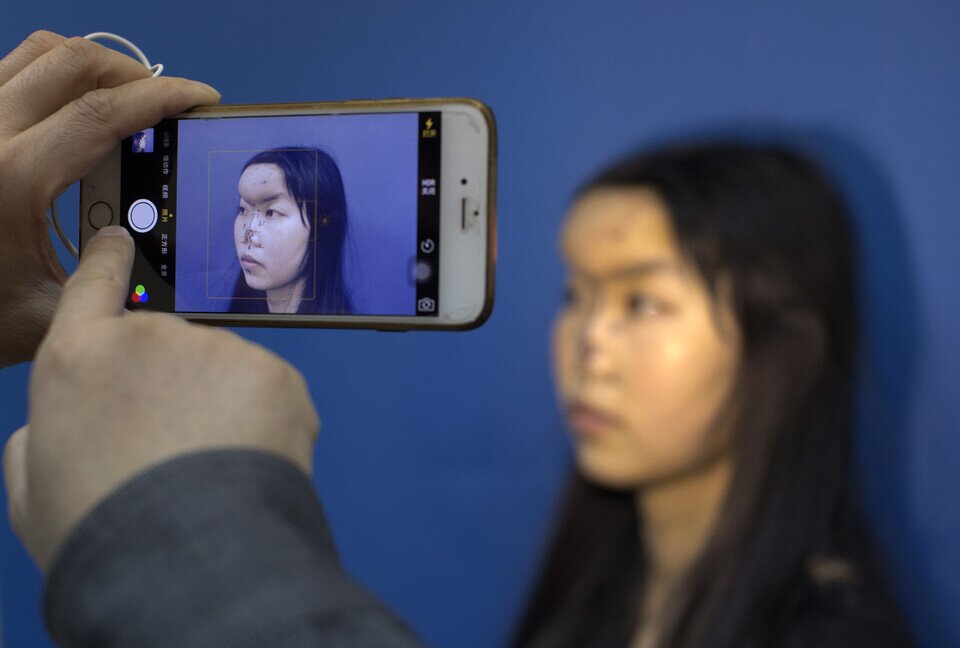
‘I used to think there wasn’t much hope left in life. It was your support, though, that gave me the courage to fight against domestic violence.’
--Xiaoyun
Soon after Xiaoyun married when she was 20, the abuse began. After 10 years of violence, she couldn’t take it any longer and decided to divorce her then-husband and move away to find work. When she returned once to sort out parenting arrangements for their three children, she refused her ex-husband’s request to remarry. He then – in the presence of her parents and their children – bit off her nose.
Oxfam supported Beijing Yuan Zhong Gender Development Center to implement the ‘Legal Service and Advocacy on Gender-based Violence Elimination’ project, which has provided Xiaoyun with financial and legal support. After the trial, her ex-husband was sentenced to six years of imprisonment for intentional injury.
Upon hearing this, Xiaoyun said, ‘I want the sentence to be reviewed – it’s too light. He’s done more than just bite off my nose – he’s damaged me and my children for life, especially my children.’
Xiaoyun’s lawyer believes that this is a very severe case but the court hadn’t considered the devastating impact domestic violence has had on Xiaoyun or her children. They’re now appealing against the sentence.
‘He’s the very definition of domestic violence, whether towards me or my children,’ Xiaoyun said. ‘I think the court ruled in favour of that criminal. They didn’t put themselves in my shoes to understand how I felt. The law should punish men like [my ex-husband] as a warning to others and so that the women who are quietly suffering from domestic violence can be freed from it as soon as possible.’
For many years, we at Oxfam have supported various organisations that promote the enactment of anti-domestic violence laws. We’re also providing those affected by domestic violence with different kinds of services, like counselling, legal aid and emergency support.

